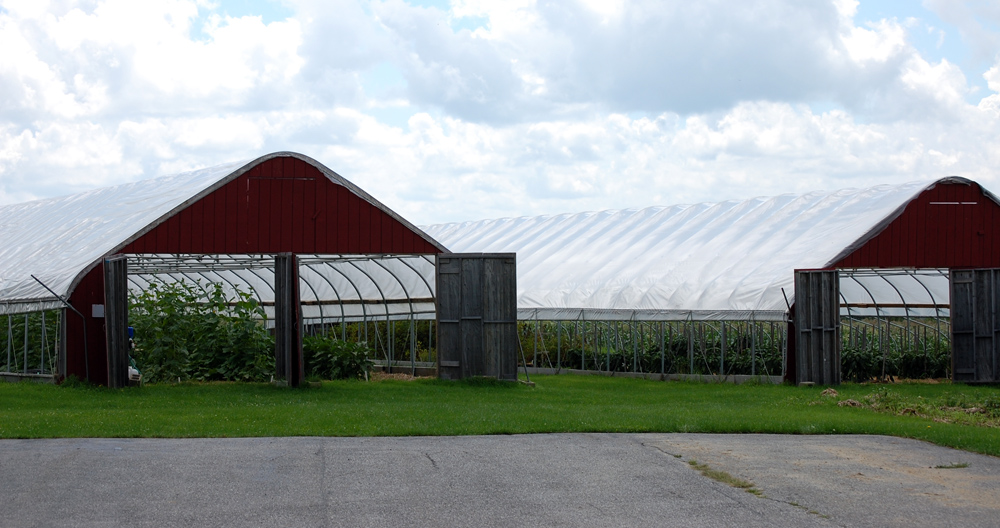
Improvements in vegetable crop management for open field and protected culture in Maine
More than 60% of Maine vegetable growers use hoop houses. Primarily the structures are used for the production of summer season tomatoes and/or fall through spring greens production with little crop rotation or cover cropping. Little attention is given to maintaining soil health other than application of typically large volumes of compost or manures. Overtime there is a build-up of disease organisms, accumulation of salts and imbalances in plant nutrients resulting in reductions in yield and quality. This research will develop and evaluate improved management strategies for hoop house crop production for year long production, evaluate open-field season-extension technologies for use by Maine growers, and evaluate other crop-management strategies such as compost application rates, intercropping, mulches, and sequential cropping for improving produce yields and quality while improving soil health and reducing agrochemical inputs. Many growers are seeking to expand the area under protected culture through the use of structures which are both portable and inexpensive. A series of experiments evaluating the feasibility and economics of using three low cost 12×40 feet caterpillar tunnels to increase yield and produce quality as well as increasing earliness and extending the growing season. Time and costs associated with managing the caterpillar tunnels were being tracked in each growing season and comparisons will be made to a similar planting made in the open field. This experiment will be continued over the several years. Subsequent experiments will be to compare the yields and efficiencies of small portable structures to larger more traditional hoop houses.
Investigators: Hutton, M. G.; Handley, D. T.; Hutchinson, M.; Camire, M. E.; Calder, B.
Unit: School of Food and Agriculture
Termination Date: 30-Sep-17
